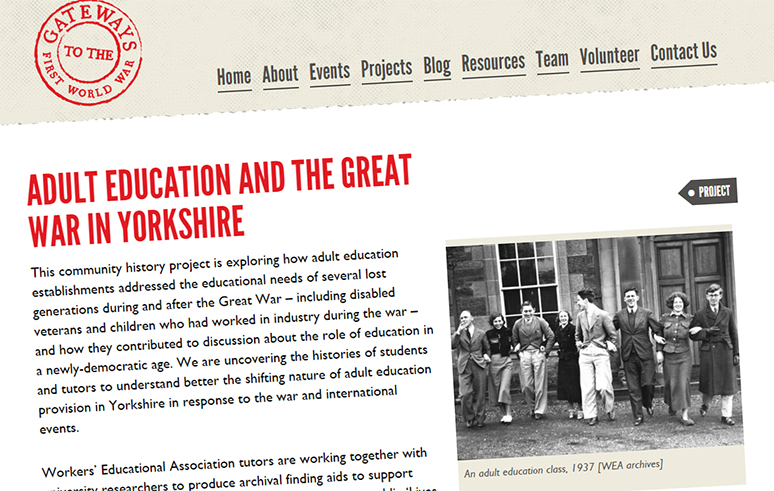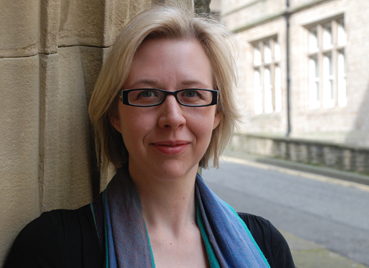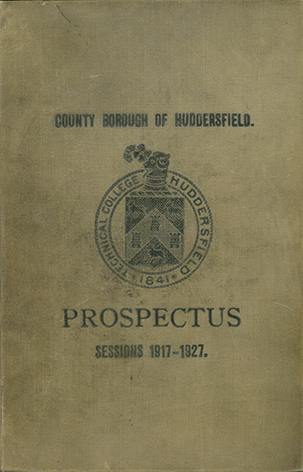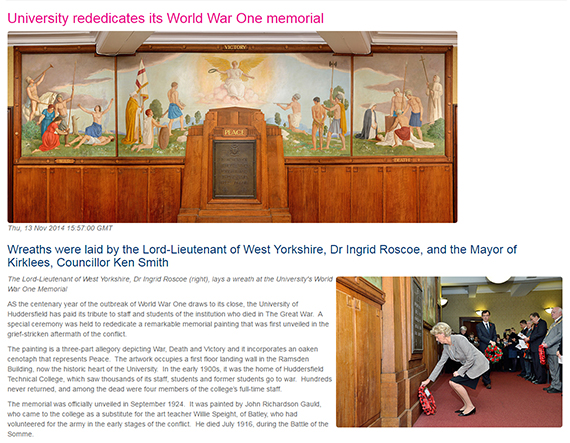Historian seeks stories of Adult Education during and after WWI

Thu, 31 Mar 2016 10:27:00 BST
The Adult Education and the Great War in Yorkshire is keen to hear of family stories of people involved in further and higher education during the conflict and beyond
 THE Great War of 1914-18 took millions to the Western Front, with an impact – often tragic – on almost every family in Britain. But it was also responsible for social and educational changes on the Home Front that resonated into peacetime. The University of Huddersfield is participating in a project that offers members of the public an opportunity to research these topics and also explore the personal histories of individuals and institutions swept up in the conflict.
THE Great War of 1914-18 took millions to the Western Front, with an impact – often tragic – on almost every family in Britain. But it was also responsible for social and educational changes on the Home Front that resonated into peacetime. The University of Huddersfield is participating in a project that offers members of the public an opportunity to research these topics and also explore the personal histories of individuals and institutions swept up in the conflict.
 Dr Rebecca Gill (pictured) is a senior lecturer in history whose own research has included various aspects of WWI. Now she is heading a public engagement project, in partnership with the Yorkshire and Humber region of the Workers’ Educational Association (WEA) and Professor Alison Fell of the Legacies of War project at the University of Leeds. It has received funding from the Arts and Humanities Research Council, via the Gateways to the First World War Centre, based at the University of Kent.
Dr Rebecca Gill (pictured) is a senior lecturer in history whose own research has included various aspects of WWI. Now she is heading a public engagement project, in partnership with the Yorkshire and Humber region of the Workers’ Educational Association (WEA) and Professor Alison Fell of the Legacies of War project at the University of Leeds. It has received funding from the Arts and Humanities Research Council, via the Gateways to the First World War Centre, based at the University of Kent.
The project is named Adult Education and the Great War in Yorkshire. Researchers, including the University of Huddersfield historian Dr Rob Light and Dr Sarah Holland of the WEA, have been delving into archive material available in Yorkshire that helps to tell the stories of individuals and their involvement in further and higher education during the conflict and beyond.
This research will provide material that will be then be used in a sequence of public history workshops taking place in May. One will be on 20 May at the University of Huddersfield’s Heritage Quay, where the collections include the archives of Huddersfield Technical College, the University’s precursor. A website provides poignant stories of some of the staff and students who went to war and the story behind a recently-rededicated WWI memorial at the University (pictured below).
Dr Gill said that the workshops would provide help and training for researchers – including members of the WEA – who wished to investigate the life stories of individuals and their involvement with adult education during the war and its aftermath. Conscientious objectors were an important part of the story.
 “We are also interested in how the Great War shaped curricula in further education. For example, we have looked at prospectuses that show an increased interest in international affairs,” continued Dr Gill. This was an attempt to equip people with an understanding of the forces that led to the conflict and prevent war in future, she said.
“We are also interested in how the Great War shaped curricula in further education. For example, we have looked at prospectuses that show an increased interest in international affairs,” continued Dr Gill. This was an attempt to equip people with an understanding of the forces that led to the conflict and prevent war in future, she said.
“Before the war there was an emphasis on technical education. That is still there, especially in chemistry and textiles, but in addition you get a humanities curriculum with an emphasis on international relations and, in the new democratic age after the Great War, it was intended to educate people for citizenship.”
◄ Rededication of the World War One memorial at the University of Huddersfield
The war also led to an increased number of women being enrolled to study technical subjects such as chemistry, so that they could work in the dyeing industry, shorn of male workers. There were also concerns that during the war large numbers of children were forced to work in factories, robbing them of schooling.
“So there is a sense of a lost generation who needed to be given a fair deal and educational provision after the war,” said Dr Gill.
- Dr Gill can be contacted at r.gill@hud.ac.uk for information about the project and how to take part in the history workshops, due to take place in May in Huddersfield, Sheffield and Leeds. Dr Gill is also keen to hear family stories concerning people who were involved in adult education during the Great War and afterwards.







